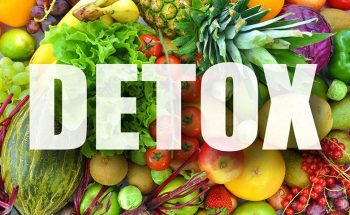Beetroot, often seen as just another vegetable on the shelf, is in fact a powerhouse of nutrition and taste. This vibrant root vegetable, hailing from the same family as chard and spinach, is a hidden gem in the world of healthy eating. While most are familiar with its deep red colour, few are aware of the incredible benefits it offers. Whether it’s in the form of beetroot juice, a crunchy salad, or a hearty beetroot soup, this vegetable is a versatile addition to any diet.
What is Beetroot?
Beetroot, known scientifically as Beta vulgaris, is more than just a root vegetable. It’s a historical staple, with evidence of its consumption dating back to ancient civilizations. Available throughout the year, beetroot reaches its peak sweetness and tenderness from June to October in the UK. Interestingly, while various heirloom varieties exist, such as white and yellow beets, it’s the red beetroot that contains betacyanin, a compound known for its cancer-fighting properties.
Fun Fact: The vibrant red colour of beetroot has been used historically as a natural dye, adding a splash of colour to not just dishes but fabrics too!
Beetroots consist mainly of water (87%), carbohydrates (8%), and fibre (2–3%). A single cup of boiled beetroot contains fewer than 60 calories, making it a low-calorie yet nutrient-rich option.
Nutrition of Beetroot
When it comes to nutrition, beetroot is a treasure trove. It offers a range of vitamins and minerals essential for good health. For instance, a 100-gram serving of raw beets provides:
- Calories: 43
- Water: 88%
- Protein: 1.6 grams
- Carbs: 9.6 grams
- Sugar: 6.8 grams
- Fiber: 2.8 grams
- Fat: 0.2 grams
These nutritional facts highlight beetroot’s low-calorie and high-fibre profile. The carbohydrates in beetroot, composed of simple sugars like glucose and fructose, account for 70-80% of its carb content. It’s also worth noting that beetroot contains fructans, a type of short-chain carbohydrate, which can cause digestive issues for some people.
The glycemic index (GI) of beetroot is 61, classified as medium, but its glycemic load is only 5, very low. This means beetroot doesn’t significantly impact blood sugar levels, making it a safe choice for most diets.
Like a hidden treasure chest in the culinary world, beetroot’s humble exterior belies its rich nutritional content, much like finding a pearl in an oyster.
The fibre content in beetroot, approximately 2-3 grams per 100 grams, plays a crucial role in maintaining a healthy digestive system. This high fibre content is linked to a reduced risk of various diseases, making beetroot an excellent choice for a health-conscious diet.
Health Benefits
The myriad health benefits of beetroot are as diverse as its culinary uses. Rich in essential nutrients, beetroot can significantly enhance overall health. It’s known to increase stamina, with athletes often turning to beetroot juice to boost performance, thanks to its ability to improve blood flow and oxygenation during exercise.
Beetroots are also champions in heart health. They are high in folate (vitamin B9), vital for cell growth and function. This nutrient plays a crucial role in reducing the risk of heart disease and stroke. Additionally, the natural nitrates in beetroot, which convert to nitric oxide in the body, help lower blood pressure by relaxing and widening blood vessels.
Fun Fact: Beetroot can turn your urine pink or red, a harmless effect but often mistaken for something more serious!
The fibre in beetroot not only aids digestion but also boosts the immune system by promoting healthy gut bacteria. The antioxidants present in beetroot, like betacyanin, help reduce inflammation and protect cells from damage.


Cooking with Beetroots
Beetroots are incredibly versatile in the kitchen. Whether you’re making a beetroot salad, soup, or smoothie, there’s no end to the creative ways you can include this nutritious vegetable in your meals. Roasting beetroots is a simple yet delicious method that brings out their natural sweetness. For a quick and healthy option, try balsamic roasted beetroots or incorporate them into salads for added texture and flavour.
Beetroot juice is another popular way to enjoy this vegetable, especially when combined with other ingredients like carrot, apple, ginger, and lemon. This not only creates a nutrient-packed drink but also adds a delightful burst of flavour.
Conclusion
In conclusion, beetroot is not just a colourful addition to your plate; it’s a nutritional powerhouse that brings a host of health benefits. From boosting stamina and heart health to enhancing the immune system, beetroot is a versatile and essential ingredient for anyone looking to improve their diet. Whether you’re juicing it, roasting it, or tossing it in a salad, beetroot is an excellent choice for those seeking both flavour and nutrition in their meals.
FAQs
- Can beetroot boost exercise performance? Yes, it improves blood flow and oxygenation.
- Is beetroot good for heart health? Absolutely, it’s rich in folate and nitrates.
- Does beetroot have any digestive benefits? Yes, its fibre content aids digestion.
- Can beetroot juice affect urine colour? Yes, it can turn urine pink or red.
- Is roasting a good way to cook beetroot? Indeed, it enhances its natural sweetness.





